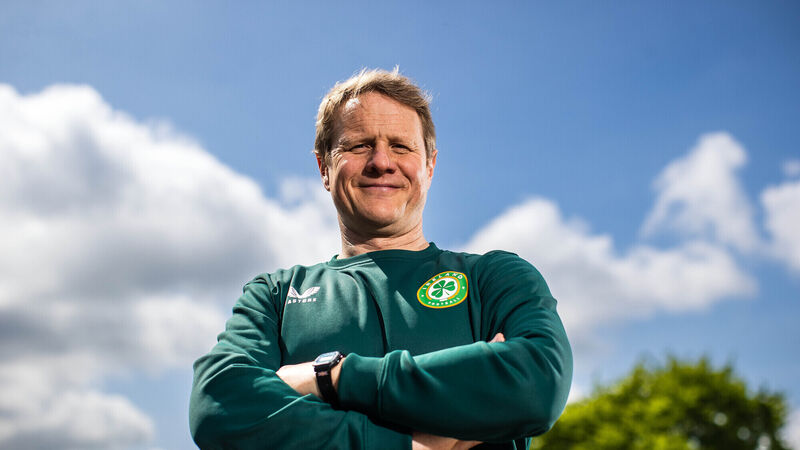First post-Brexit U17 Euros the first real test of domestic bliss

EUROPEAN FINALS: Head coach Colin O'Brien ready for the challenges ahead. Pic: INPHO/Ryan Byrne
Everybody knew Brexit would be a game-changer in Ireland and U17 European finals starting tonight may supply the first indicators as to whether it will be a whole new ball game on the pitch.
The last time Colin O'Brien led his team at this stage, in the 2019 tournament against a Belgium side that included Jérémy Doku, none of his starting team were signed to League of Ireland clubs.









